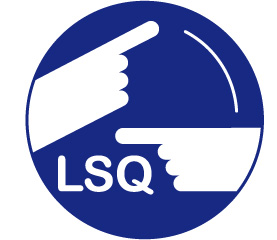Provincial Helpline
1-888-933-9007 or 514-933-9007
Toll-free | 24/7 | Bilingual | Confidential
Medico-social assistance 
Medico-social assistance is available to all victims of sexual assault, regardless of age or gender. When the victim arrives at the designated centre, she will be cared for by a team of professionals who have been trained in working with victims of sexual assault. She will have an opportunity to talk, to express her needs and emotions. Her concerns will be heard. The team will support her throughout the entire process; nothing will be done without her consent. She will, however, be asked several questions in order to determine what type of examinations will be required.
Psychological support
Throughout the entire process at the designated centre, the victim will receive psychological support from a multidisciplinary team. She will be informed of the possible consequences of a sexual assault, such as nightmares, fear, insomnia, fatigue and anxiety.
Following the medical and forensic examinations, the team can provide the victim with additional support if she decides to report the assault to the police. Any documents required to justify absence from work or school will be provided. The centre also offers psychosocial follow-up for victims to help them deal with the repercussions of the assault. Victims and survivors will also be given referrals to other community care organizations (réseau communautaire) that will be able to support them through the healing process.
-
assess the victim's general state of health
-
treat any injuries
-
test for sexually transmitted or blood-borne infections
-
prevent an unwanted pregnancy
Forensic examination and forensic evidence examination and kit
The forensic examination includes the taking of samples that could be used if the victim decides report the assault to the police.
The forensic evidence kit is the tool used during the forensic examination, and is one of the elements used to provide evidence in the event of a police investigation.
The kit standardizes the information gathered and the manner in which the samples are obtained in order to provide objective scientific evidence. The purpose of the samples is to find biological traces of the assailant — such as sperm, saliva or blood — on the victim's body or clothing. DNA obtained from these biological substances is used to establish the genetic profile of the assailant.
A recent victim of a sexual assault can complete the forensic kit even if she has not yet decided whether or not to report the assault to the police. The designated centre will keep the completed kit for a minimum of 14 days. If the victim decides to file a report, the designated centre will give the kit to the person in charge of the police investigation. It will then be sent to the forensic laboratory (Laboratoire de sciences judiciaires et de médecine légale) where specialists will conduct various analyses.
Tous droits réservés TCACSM 2026
Développement web : ViGlob